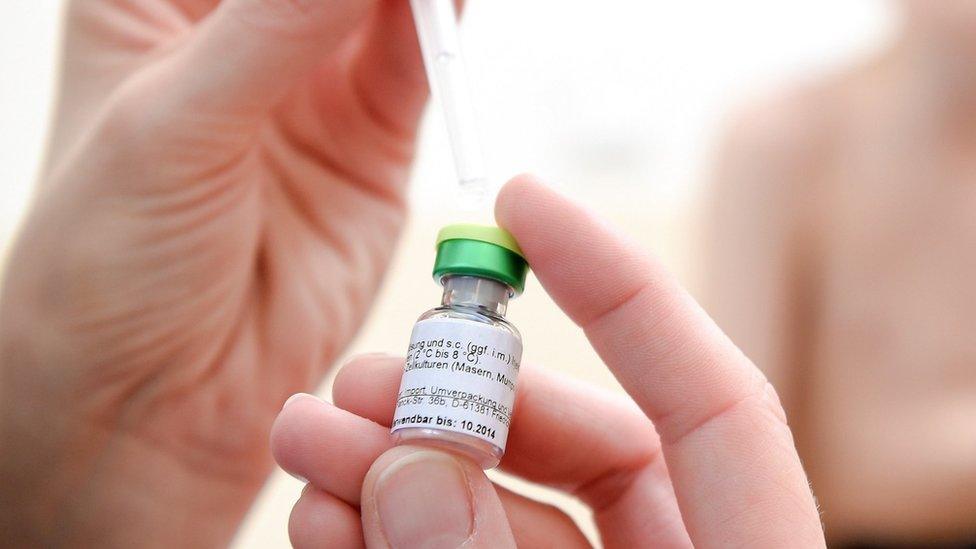Instagram blocks vaccine hoax hashtags
- Published

Instagram says it will block hashtags being used to spread "verifiably false" information about vaccinations.
The social network already blocks hashtags that are themselves false claims, such as #vaccinescauseautism.
It says it will now block more general hashtags that are being used to spread lies by so-called anti-vaxxers.
However, several anti-vaccine topics and accounts spreading misinformation and hoaxes are still active on Instagram.
Hoaxes not hoaxers
Instagram told the ┤¾¤¾┤½├¢ it will not take action against people or accounts who identify themselves as anti-vaxxers.
However, it will work to limit the spread of provably false claims because these have real-world harmful effects on the public.
It said it relied on global authorities such as the World Health Organization and the US Centers for Disease Control and Prevention to identify hoaxes.
False claims such as #vaccinescauseaids and #vaccinesarepoison are already banned and return no search results on Instagram.
But the platform will now begin to block hashtags that are being used to spread vaccine misinformation.
For example, if the hashtag #vaccines1234 started to be used on false claims, it would also be blocked.
The topic will be difficult to police. Anti-vaccination accounts will not be banned, and new hashtags such as #vaccineskillandmaim appear when the old ones are blocked.
Even neutral or pro-vaccine hashtags such as #vaccines or #vaccineswork are co-opted by anti-vaxxers to spread false claims.
Instagram is also thinking about showing educational pop-up messages to people who search for vaccine-related hoaxes.
The platform already shows pop-up messages to people searching for drugs or browsing self-harm topics.
In February, YouTube stopped serving ads to lots of popular channels that promote anti-vaccine conspiracy theories.
It took the step following protests from firms who discovered their adverts were running alongside the controversial videos.
The World Health Organization said anti-vaccine views were a "top 10 global health threat" in 2019.
- Published3 April 2019
- Published24 January 2019
- Published25 February 2019